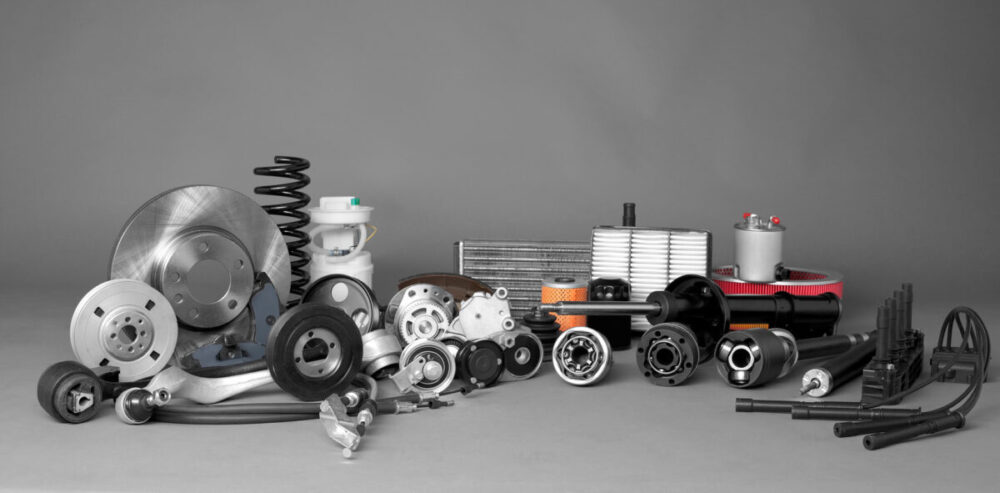Truck owners know the reality: parts are essential, and they can dent your wallet if you aren’t careful. Finding affordable parts without sacrificing quality takes some strategy, but the payoff can be massive. This guide will walk you through the best tips for scoring great deals so you can keep your truck running smoothly without emptying your bank account.
Key Points:
- Research before buying anything.
- Compare prices on multiple sites.
- Know the types of parts available.
- Don’t overlook quality over savings.
- Consider buying from reputable online stores.
1. Look for Deals on Trusted Websites

You might think that physical stores offer the best selection, but that’s not always the case. Websites dedicated to truck parts, like Ever Trust Parts, offer a variety of parts that may not always be stocked in stores. Plus, they often have online-only deals, and sometimes even customer reviews, which help you gauge quality. Shopping online gives you the advantage of comparing prices across platforms, finding discounts, and grabbing free shipping offers.
2. Sign Up for Notifications and Promotions
Brands love giving discounts to loyal customers, and you’ll often find promotional codes hitting your inbox. Signing up lets you know about price drops, clearance sales, and limited-time offers. Set up an email just for these notifications if you want to keep things organized. You’ll thank yourself later when you’re getting parts for a fraction of the original price.
3. Compare Suppliers
Let’s get real: the first deal isn’t always the best. Different suppliers will offer the same part at wildly different prices. Don’t rush—take time to compare prices on a few sites. Use comparison tools or simply open a few tabs and see how prices match up. If one site offers the same part at a lower price with similar shipping costs, go for it. However, always check the seller’s reputation to ensure you’re buying reliable, quality parts.
4. Know Your Parts: OEM, Aftermarket, or Recycled?
Each type of part comes with its own benefits and price points.
- OEM (Original Equipment Manufacturer) parts are generally high-quality but can be pricier.
- Aftermarket parts are usually cheaper and work fine for most needs, but quality can vary.
- Recycled parts are great if you’re looking to save, but always ensure they’re in good condition.
Knowing what type fits your budget and purpose can keep you from overspending or buying parts that wear out too quickly.
5. Check Local Junkyards

If you’re up for a treasure hunt, head to a junkyard. You’d be amazed at what some trucks leave behind when they’re scrapped. Junkyards let you find decent parts for a fraction of the price of new ones. Take a friend, wear some gloves, and dig in. It may take a bit of elbow grease, but finding a part that’s still in great shape can save you a ton. Just remember to check the part’s condition carefully before you buy it.
6. Watch for Seasonal Sales and Black Friday Deals
Some sales aren’t just for holiday shopping! Black Friday, Cyber Monday, and even end-of-season sales can be gold mines for parts deals. Retailers want to clear stock for newer items, which means you can snag items at a fraction of their usual cost. Keep a calendar reminder for key sale dates, and have a list of parts ready so you know what to grab when the price drops.
7. Buy in Bulk for Consumable Parts
For certain parts that wear out regularly, buying in bulk can be a lifesaver. Filters, fluids, or even spark plugs—buying a few at once can often lead to discounts. Many suppliers offer reduced rates on bulk orders, so why not stock up on essentials? You’ll save on future shipping costs, and it’s always handy to have extras on hand.
8. Consider Refurbished Parts for Major Savings

Refurbished parts have been repaired and tested, offering quality close to new for a lower price. Many mechanics use refurbished parts to keep costs down for customers, and you can do the same. Just make sure you buy from reputable sellers who back their products with warranties.
9. Don’t Forget the Warranty
Even the best-looking deals can backfire if the part has no warranty. Some parts can be faulty straight out of the box, so you’ll want coverage. Always choose a seller who offers a warranty on parts. Spending a bit more for a warranty can save you from headaches down the road, and most warranties cover a part for at least six months, which is plenty of time to spot any issues.
10. Ask for Discounts
It sounds basic, but asking for a discount can work wonders. Many retailers, especially smaller shops, are willing to negotiate. Whether you’re buying online or in-store, don’t shy away from sending an email or asking directly for a price reduction. They may say no, but you might end up with a better price just by asking.
FAQ Section
1. Can I get quality parts online?
Yes, many online stores offer high-quality parts. Check reviews and look for trusted sellers to ensure you’re buying reliable items.
2. Is buying aftermarket parts risky?
Not necessarily. Aftermarket parts can be as good as OEM parts, but it depends on the brand. Stick with reputable aftermarket manufacturers.
3. Are recycled parts a good option?
They can be if you’re looking to save. Always check the condition and try to buy from reputable sellers or junkyards.
4. How can I know if a price is good?
Compare prices across different websites, and check if discounts or promotions are available. Use comparison tools when possible.
5. Is a warranty essential?
Absolutely. A warranty covers you if the part fails early, so it’s worth paying a bit more for parts that come with one.





